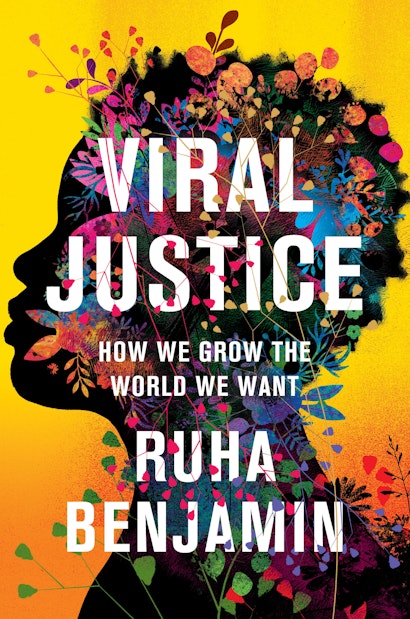For this month’s Office Hours, I’m delighted to share wisdom and inspiration from Ruha Benjamin, author of the forthcoming Viral Justice: How We Grow the World We Want. Benjamin is a professor of African American Studies at Princeton University, where she is the founding director of the Ida B. Wells Just Data Lab. She will be embarking on a 20-city global book tour this fall so if you enjoy this Q&A and want to learn more, check out her events page or pick up a copy of Viral Justice to go deeper.
—Meagan Levinson, Executive Editor
ML: What are you reading now?
RB: Rehearsals for Living by Robyn Maynard and Leanne Betasamosake Simpson… a mind-expanding, heart-opening text.
ML: What book has had the most impact on your career?
RB: I read Patricia Hill Collins’ Black Feminist Thought: Knowledge, Consciousness, and the Politics of Empowerment as an undergrad Soc major at Spelman. Like the fictional professors on A Different World, Collins’ work opened up a portal that let me see myself as a writer, teacher, and thinker… a possibility that up to that point I didn’t know existed.
ML: What first sparked your interest in sociology?
RB: I started out a theatre major in undergrad and it took just one Soc class to get me hooked (shout out to Prof. Barbara Carter!). I think what initially enticed me was that sociology gave me a language (some of it dramaturgical) to name and understand the world around me. As a budding troublemaker, I surmised that naming how power operates and how inequality is reproduced was the first step in challenging business as usual.
ML: Do you have a favorite moment as a researcher, maybe an encounter that unexpectedly changed your way of thinking or the direction of a project?
RB: A few years back I was trying to come up with a title for an edited volume and I sent a few options to the contributors for feedback. One of them, Ron Eglash, responded by noting that, as academics, we’re really good at naming the problems we study (as my proposed titles did at the time), but we are less adept at naming the world we want (“real utopias” as Erik Olin Wright called them). Since that exchange I’ve been much more deliberate about developing ideas and concepts that are critical and creative. Captivating Technology: Race, Carceral Technoscience, and Liberatory Imagination in Everyday Life…the last phrase and the last third of that volume reflects this shift. Likewise, when I first started writing Viral Justice, I was calling it Viral Racism… but then that exchange came back to me and I revised. It’s not just about the title, but also about the creative orientation I try to take in the work itself.
ML: What is the best career advice you ever received?
RB: “If you put off the things you really care about until after tenure, by then, you may no longer care about them.”
ML: If you could have dinner with two sociologists, living or passed, who would they be an why?
RB: Ida B. Wells-Barnett and her grandson (my dissertation chair) Troy Duster. I imagine them having a far-reaching conversation about the power and the limits of social analysis and public sociology to transform the racist status quo.
ML: What makes you feel hopeful about the future of sociology?
RB: Definitely the next generation of scholar-artist-organizers I get to work with in the Ida B. Wells Just Data Lab because they combine a critical and creative approach to social analysis and social change that energize me to no end!
Ruha Benjamin is an internationally recognized writer, speaker, and professor of African American Studies at Princeton University, where she is the founding director of the Ida B. Wells Just Data Lab. She is the award-winning author of Race After Technology: Abolitionist Tools for the New Jim Code and editor of Captivating Technology, among many other publications. Her work has been featured widely in the media, including the New York Times, the Washington Post, CNN, The Root, and The Guardian.

